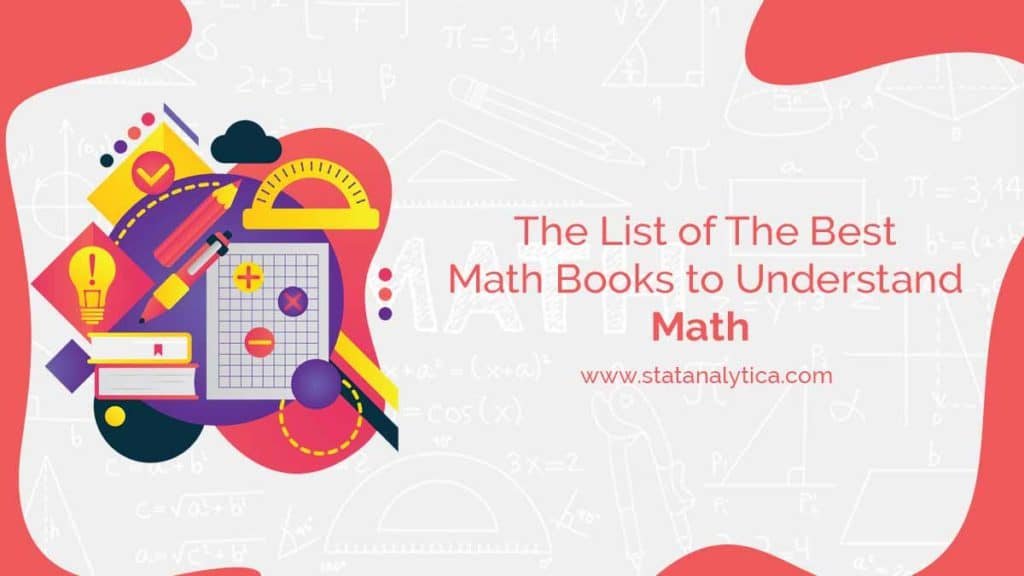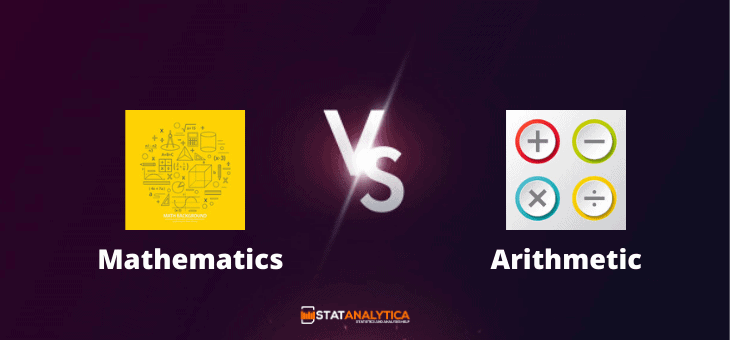Best math books is the key to success for many students because, before the advancement of the modern age, mathematics had its limits.
But, nowadays, it has developed into a vastly diverse topic and they are not up to a limit.
The developments in mathematics are still continuous that make great contributions in the technical fields.
Mathematics is termed the queen of science.
There are a number of areas that are evolved on the basis of mathematics.
Because of the expansion of mathematics usage and scope, there is a requirement to classify several branches of mathematics.
Each year number of math books are published, but few of them are successful to be loved by mathematicians and students all around the world.
In this blog, you will find some of the best math books that help you to understand the complexity of the mathematics subject.
But, before proceeding to the further details of the books, get some information about what are the main branches of mathematics.
We will provide you the details of the book as per the branches of maths.

What Are The Main Branches Of Mathematics?
Table of Contents
- Arithmetics: It is most elementary and the oldest among all other branches and it deals with the basic operations and number system of mathematics such as addition, multiplications, subtractions, and divisions.
- Algebra: It is a type of arithmetics that deals with the unknown numeric quantities. The unknown numeric quantities consist of alphabets like A, B, X, Y, and much more. The alphabets help to generalize the rules and formulas that one writes and they help to find the missing value of algebraic equations and expressions.
- Geometry: This is the most practical and usable branch of maths that deals with the size and shape of figures and their properties. This branch consists of lines, surfaces, points, angles, and solids.
There are other branches too that deal with the higher studies of mathematics.
- Trigonometry: This term is derived from Greek that trignon (means triangle) and metron (means a measure). This branch of maths deals with the sides and angles of triangles.
- Analysis: It deals with the rate of changes in different quantities. Calculus is the basic form of analysis.
Now, we will provide you with a list of the best math books as per the branches and overall conceptual books.
These books are useful to enhance your knowledge of the concepts and theories of mathematics.
One can prefer one or more books that are listed below and improve their grades in the academic exams and assignments.
Why Is Mathematics Considered Harder Subjects To Learn For Students?
1. Difficult Concepts
Mathematics involves difficult concepts and ideas that can be challenging for students to grasp initially. Concepts such as infinity, limits, and imaginary numbers may seem unfamiliar and difficult to understand without sufficient context or visual representation.
2. Complex Problem Solving
Mathematics requires logical reasoning and problem-solving skills. Students need to apply various techniques and formulas to solve complex mathematical problems, which can be mentally demanding and time-consuming.
3. Cumulative Nature
Mathematics is a cumulative subject, meaning that new concepts build upon previously learned ones. If students have gaps in their understanding or struggle with foundational concepts, it can hinder their progress in more advanced topics.
4. Lack of Real-World Context
Sometimes, students struggle to see the practical applications of mathematics in real life. Without understanding how mathematical concepts relate to everyday situations or other academic disciplines, they may be harder to engage and find motivation to learn.
5. Symbolic Language
Mathematics uses a symbolic language with equations, symbols, and notation that can appear complex and unintuitive to students. Understanding and interpreting mathematical symbols requires practice and familiarity, which can pose a barrier for learners.
6. Perception of Difficulty
Mathematics has a reputation for being a challenging subject, which can create a psychological barrier for students. Negative beliefs or anxiety about math can impact their confidence and willingness to engage with the material, making it harder for them to learn effectively.
13 + Best Math Books For Students In 2023
Here we will discuss 13+ best math books for students in 2023, after reading these books, students gain a deep knowledge of mathematical concepts:
The Princeton Companion to Mathematics: By June Barrow-Green, Timothy Gowers, and Imre Leader.

This is one of the best math books that every mathematician and student must have.
This book has defined the truth of mathematics which is versatile and has the ability to make students understand the complexity of maths as it has all the techniques to solve all the maths problems.
The editor of this book is also successful to manage this book cohesively and bind them together.
This book has a variety of mathematical topics with their respective specialized articles that help the students to learn advanced mathematics.
It is considered the best math book because it is also helpful for non-mathematicians who want to learn the concepts of maths that are required to deal with the overall accessible nature.
This book can be readable up to a hundred years from now. And this can be the best choice to learn mathematics.
Encyclopedia of Mathematics: By James Stuart Tanton
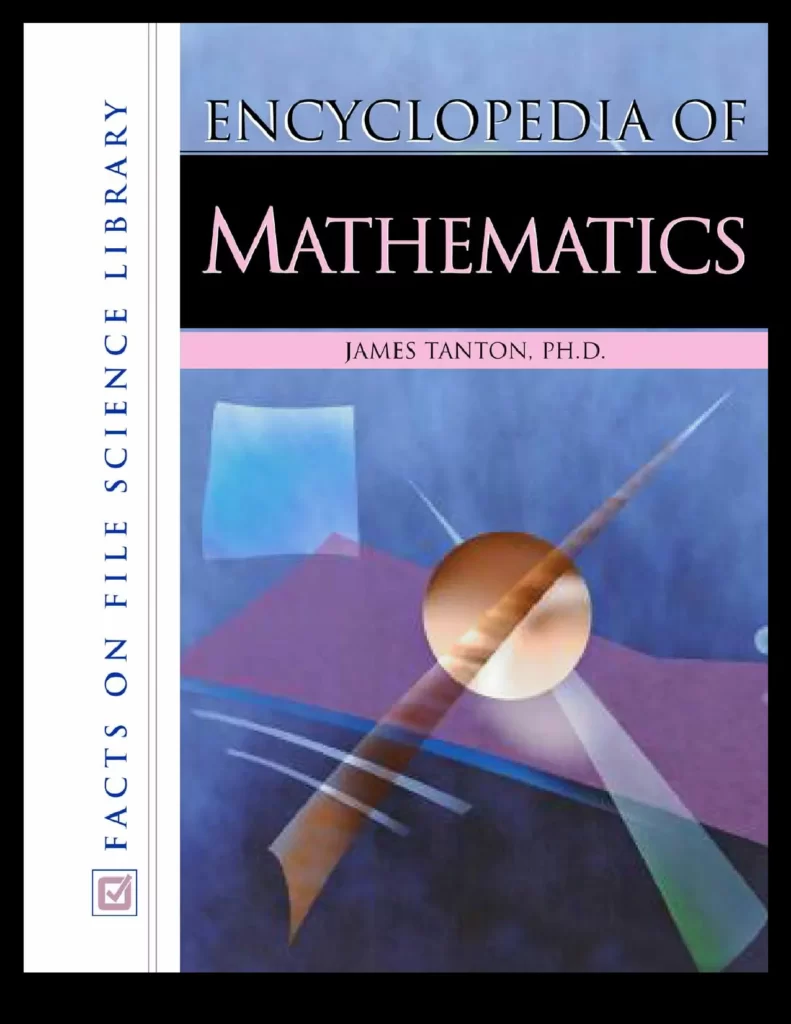
This can be the best reference for maths lovers as its name implies that it has all the information and covers all the topics of mathematics such as arithmetics, algebra, calculus, and much more.
The author of this book has done tremendous work for the learners by providing a quick search to each topic with the relevant information without puzzling them with the concept of each topic.
One of the best features of this book is that it is formatted in an A-Z alphabetic structure that also offers an outline to draw a connection between other topics which is necessary to understand a topic.
Besides this, it covers the necessary resources and facts that are essential to learning the concepts of maths.
This book has more than 800 entries with the relevant timelines that follow those entries.
A Mathematical Introduction to Logic, Second Edition: By Herbert Enderton

This book can not remain to come in the list of the best math books. As it has the finest introduction text with the logical analyzes that each student understands with ease.
The author of this book has covered all the skillful explanations, all the number systems, theorems, and other topics.
This book is recommended by mathematics to the students who have a slight knowledge of math’s logic as this makes it easier for them to practice the exercises that are included in this book.
It comprises several well-selected examples and has a wider scope than other books that are available in the market.
This book can be suggested to the students who are seeking to know and learn mathematics logic.
Categories for the Working Mathematician: By Saunders Mac Lane
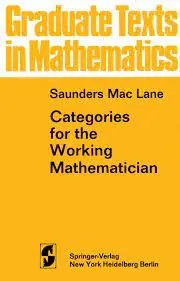
This book has covered vital categories of theories that students need to know.
You might be thinking that category theory are the toughest topics for several students but this book has explained all the information effortlessly that is easy to understand.
The author used a great writing approach with dexterity and skill.
Therefore, this book can help graduate-level mathematics with limited experience to start learning the basic terminologies before proceeding to the main theorems.
However, experienced graduates can take it to get a master’s in a mathematics trade.
Classic Set Theory for Guided Independent Study: By Derek C. Goldrei
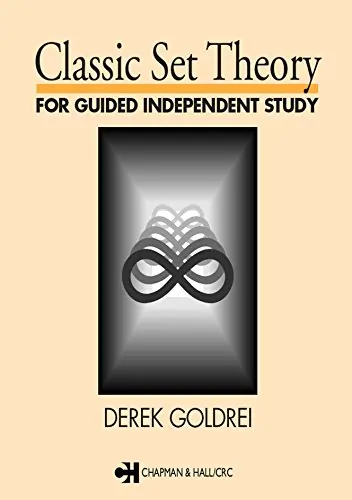
This can be used as an independent study guide which is designed to make the set theory’s topic comprehensive and easy to understand for the students who are pursuing self-study.
The reader of this book finds that it has explained all the complex topics in a smooth manner.
It has the number of exercises to practice and illustrate the number of examples based on a variety of topics.
To increase the learning experiences of the readers, this book has commentaries, ideas, and recommendations that are used to explain each topic.
This quality is found in rare books that students have never seen before.
Abstract Algebra: By David S. Dummit and Richard M. Foote

This book has an introduction to abstract algebra, which can help the students to endure the beauty and power that originates from the fruitful interaction in various fields of math.
This book explains the principles of various algebraic structures, starting with the fundamental definitions of unusual in-depth conclusions, with the help of various exercises and examples to help the students.
With this method, students get gratitude for how numerical formations and their interaction point to excellent outcomes and penetrations in various settings.
The book is outlined for a full-year graduate or undergraduate-level students. Parts of this book might be utilized for many semesters’ courses in algebra.
Each of them has a fixed background that is delving deeper into several fields: algebraic topology, algebraic number theory, algebraic geometry, Lie groups, representation theory, etc.
Calculus made easy: By Silvanus P. Thompson
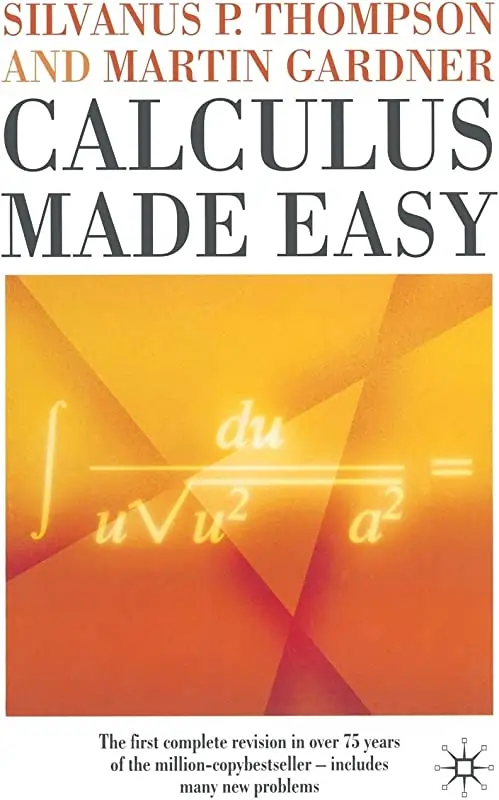
Those learners who do not understand or are skilled in math can enjoy studying mathematical calculations with the help of Calculus Made Easy.
Thompson designs friendly, encouraging conditions where students can easily learn and understand calculus’s true nature without technicality.
Frustrated learners who have attempted various difficulties after a cooperative calculus help agrees with the fact that it is an expert means given to the student with the identical wavelength.
Thompson understands that math is troublesome for various students; that is why he develops calculus into a less difficult frame than the standard method that used to confuse and puzzle the students.
Linear algebra done right: By Sheldon Axler
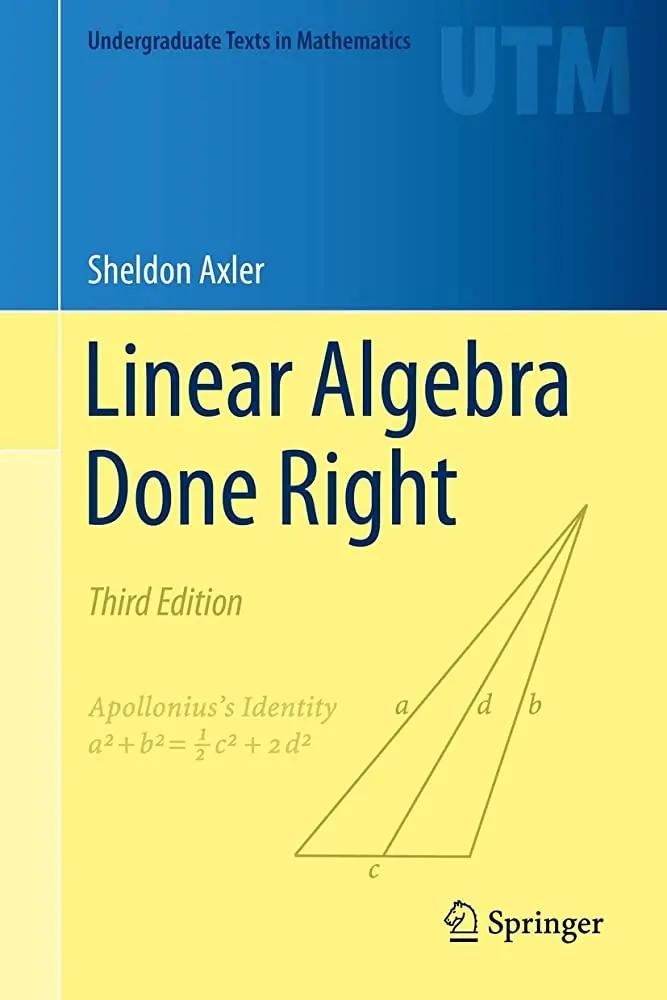
It is an excellent book demanding a small maturity level of mathematics. Axler conveys a logical and thoughtful way to the job.
He focuses on matrices and turns the attention of readers towards linear mappings.
It gives the proofs simple, elegant, and pleasing. Understanding the unfamiliarity of the reader and the time frame, Axler prepares an excellent job and enhancing the understanding of the readers instead of detailing application formulas and methods.
He gives the student various unsolved exercises that get to be stimulating and thought-provoking. Knowing how to solve the matrices is needed.
And this book goes as excellent as a second-course or supplementary to linear algebra.
The four pillar of Geometry: By John Stillwell
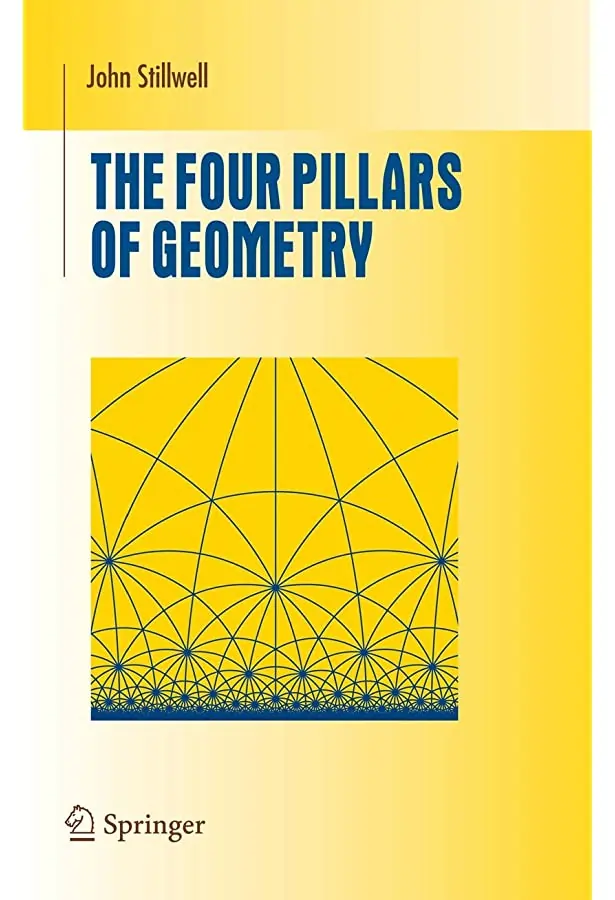
It is one of the wonderfully written books that can help learners to combine the dots in four different aspects of geometry.
Here the four pillars are compass constructions and straight-edge, linear algebra, transformation groups, and projective geometry.
This book helps the student acquire a more convincing recognition for geometry with unique capability and is compared at various angles that enable learners to increase their knowledge of this topic.
Graduate and undergraduate students and teachers can enjoy the compression of the writing of Stillwell and his knowledge to check each topic of geometry instead of feature one.
Elementary number theory: By Gareth A. Jones and Josephine M. Jones
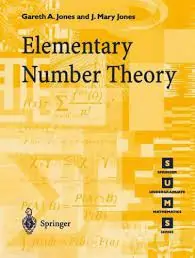
Students of graduate and undergraduate mathematics will get the book conveniently that has in-depth knowledge of maths.
Jones and Jones create a great pair that guide students’ surprisingly and painlessly enjoyable education experience.
It seems that several readers favor its readability over others. It is briefly based the advanced subjects like Fermat’s Last Theorem.
The book emphasizes the power of number theory rightfully, and the writers complete every exercise with flawless answers that something students would undoubtedly enjoy.
The book also manages as both reference material and additional study, or introductory subject literature.
An Introduction To Probability Theory and Its Applications: By Willian Feller
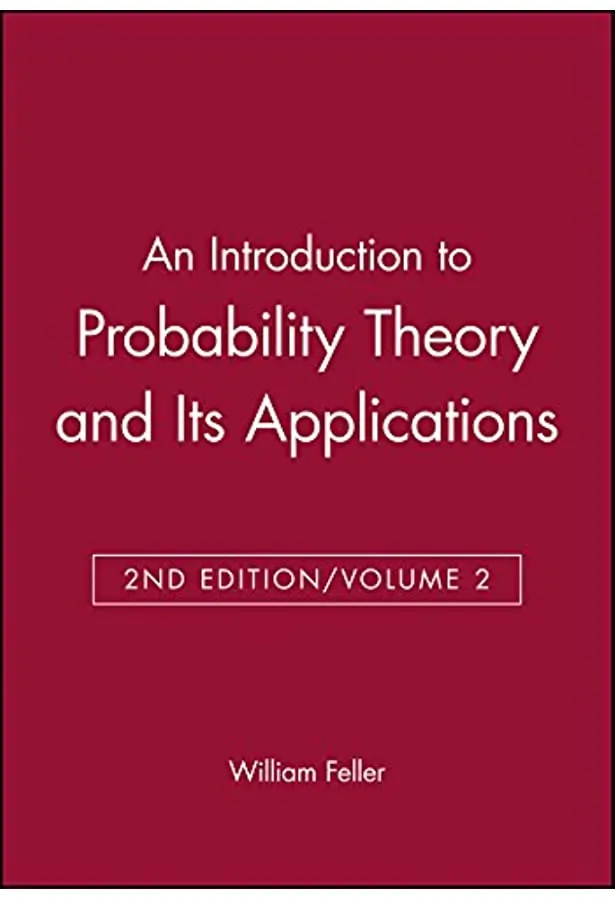
This is the first edition book, in which the author has painted a clear picture about probability theory.
Moreover, the author explains all the applications in a more interesting way from various viewpoints.
Some of the students might find the material a bit advanced; therefore, it would be better for the graduating students of 3 and 4 years to study it.
Our experts also recommend this book as it explains all the concepts with relevant examples.
The examples help the students to get clear and accurate conceptual knowledge of discrete probability.
Apart from this, students can get an intuitive understanding of the subject.
Therefore, it can be a must-read book for all the advanced students who are pursuing their studies related to probability theories.
Principles of Mathematical Analysis, Third Edition: By Walter Rudin
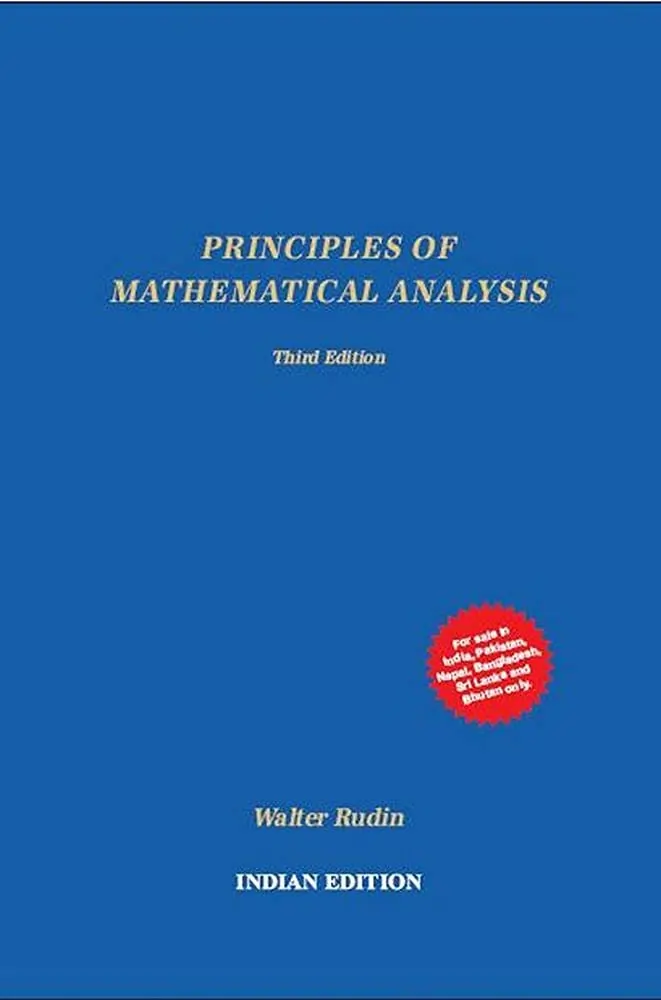
The author has given a comprehensive book about mathematical analysis.
But, before going to this book, the reader should have some conceptual knowledge about linear algebra, set theory, and other important topics.
There is a possibility that students find the problem sets a little bit tough.
But when they are able to figure out the sets, it will look very interesting and helpful to learn.
Therefore, we can say that it is a very beneficial book for students and other mathematicians.
The challenging practical problems will train the students to solve the challenging questions effectively and intuitively.
So, our experts highly recommend this book as one of the best math books.
Introductory Statistics: By Neil A. Weiss

If you are struggling with statistics problems, then this book is great for understanding various statistics problems.
The author has structured the concepts and theory in a meaningful manner to enjoy the complex concepts.
Apart from this, the author has also explained the complicated topics as elementary-level calculations so that readers can easily understand them.
Here, the author’s main focus is to explain each statistics concept that is easy to understand for beginners.
The detailed chapter included in this book is Organizing Data, Discrete Random Variables, Analysis of Variance (ANOVA), Descriptive Measures, and Inferential Methods in Regression & Correlation.
Introduction to Topology and Modern Analysis: By George F. Simmons
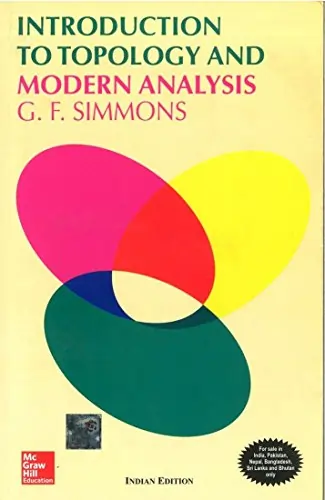
This book is divided into three different sections by the author: operators, topology, and algebra of operators.
He has given an excellent, classical, and fantastic introduction to the term topology, which is specialized for target linearity and continuity.
Here, the author’s main objective is to illuminate the meaning of the words and relate each term with the others.
This is done in each chapter; that is why it becomes easier for the reader to understand the concepts.
Students, who prefer self-study, find this book a phenomenal communicator and face no issues during the study.
He clarifies each topology concept that defines the authors’ maths capabilities and skills to solve complicated problems.
Basic Mathematics: By Serge Lang
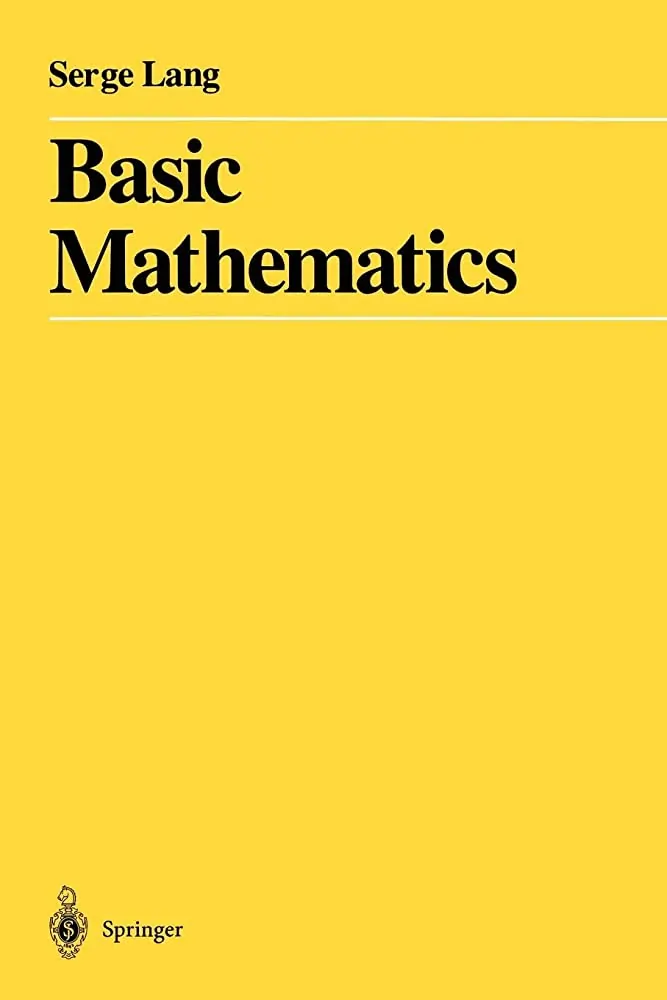
This book is considered one of the best math books for students who want to explore new things about calculus.
This book is separated into four different sections: Intuitive Geometry, Algebra, Miscellaneous, and Coordinate Geometry.
Each section has a number of problem exercises for the readers so that they can practice and polish their problem-solving capabilities.
Being an expert in mathematics, the author has constructed a strong foundation for the students to help them improve their knowledge of mathematical concepts.
Each basic concept has been explained in a well-manner that helps readers to go through the details without making them stressed.
Therefore, it gets the positions in our list of best math books for readers who are looking for the best book for algebra, calculus, and other mathematical areas.
These books cover various branches of mathematics, including algebra, calculus, number theory, geometry, topology, probability theory, and more. They are highly recommended for students and mathematicians who want to deepen their understanding of mathematical concepts and improve their problem-solving skills.
Why Should You Read Books in Math?
Here are some of the reasons why should student read books in math which are as follows:
- Reading math books enhances critical thinking and problem-solving skills, as it requires logical reasoning and analytical thinking.
- Math books offer in-depth explanations and examples that help clarify complex mathematical concepts.
- They provide a foundation for building mathematical knowledge and skills, serving as a reference for future learning and application.
- Reading math books exposes readers to different perspectives and approaches in mathematics, broadening their understanding of the subject.
- It improves mathematical literacy and fluency, enabling readers to communicate and express mathematical ideas effectively.
Conclusion
This blog has provided all the details on mathematics and its branches that a student needs to learn.
We have also listed the top 10 best math books that are beneficial for students as well as for the mathematician to understand the concepts of mathematics. These books are also reviewed by experts who check the content and method of solving the complex problems of mathematics.
Therefore, one can prefer these books to solve mathematical problems. And can score higher in their assessments or exams.
Because of these books, students can improve their grades in their academic tests and assignments by enhancing their skills and mathematics knowledge.
If you are facing any kind of difficulty while doing math homework and want us to do my math homework then contact us.
We have professionals who can provide you with the best solution to your queries with the help of plagiarism-free content that will be delivered before the deadline and affordable at low prices.
FAQs
Q1. Who is the father of Maths?
The father of mathematics is a debated topic, and there is no one specific person who is credited with the inception of mathematics. Mathematics has evolved over thousands of years and has been developed by various cultures and civilizations independently and at different times. Some early contributions to mathematics have been attributed to ancient civilizations such as the Babylonians, Egyptians, Indians, and Greeks. The Greek mathematician Pythagoras is often referred to as the “father of numbers,” Euclid, who lived in Greece around 300 BC, is known as the “father of geometry.” However, it is impossible to attribute the development of mathematics to one single person or civilization.
Q2. What is the hardest in math?
The hardest aspect of math varies from person to person and can depend on individual aptitude and prior knowledge. Some common difficult topics in math include abstract concepts such as abstract algebra, topology, and category theory, as well as advanced topics in calculus and differential equations. Other difficult areas can include trigonometry, number theory, and real analysis. The difficulty level can also be influenced by a person’s learning style and personal interest.
